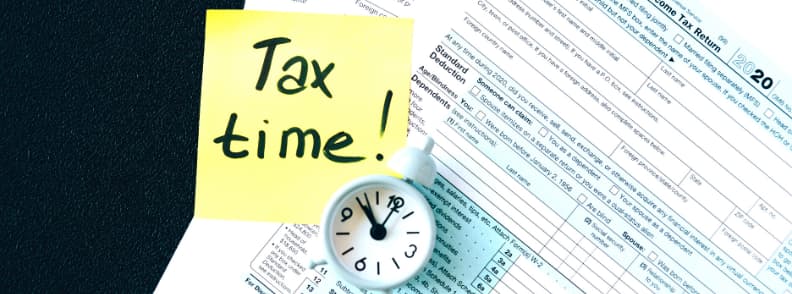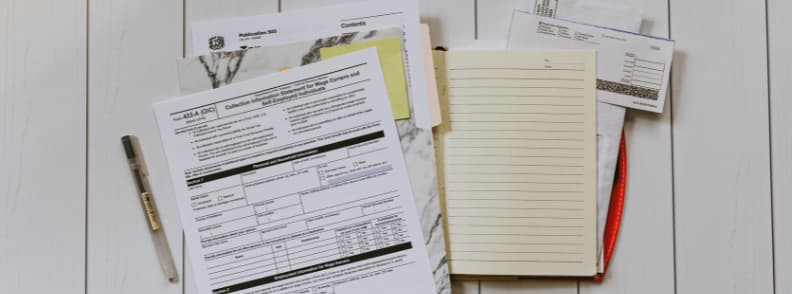Moving abroad can be so liberating and terrifying at the same time. There are so many things you don’t know, and you are afraid that something might go downhill. But, there are tons of articles dedicated to all the existing and future expats who try to start a new chapter in their lives. We are all here to help them with their transition, making it easier for them, both emotionally and financially. In the following, we’re discussing expat taxes and ways to make it easier for an expat to deal with financial matters. Don’t forget that many international moving companies offer these services to make your life easier (see Three Men And A Truck).
Expat Taxes Tips
Do expats have to pay taxes?

US expats
If you’re a citizen of the USA, then you follow the same rules that apply to all other US citizens no matter where you’re currently residing. Even if you moved all the way to another continent, the rules still apply. To free yourself of US taxes you can decide to renounce US citizenship. But this might be a major step for you and you can consider the option after consulting an expert. US expats can turn to 1040 abroad for expert tax advice that will help them permanently deal with tax problems. The US is just one of the countries that base their tax system on citizenship, along with Hungary and Myanmar.
Luckily for you, the US government can go easier on you, but just in case you sincerely didn’t know about expat taxes while living elsewhere. You’ll have to pay the last three years, and everything else will be forgiven. But, it’s a risky thing to do if you’re aware of how tax works, because you risk a fine, jail time, losing your green card if you own one…
The only legal way to avoid taxes in the US is by renouncing your US citizenship, but that is a final and irrevocable decision. Once you give it up, you can never get it back, so think this through. Also, even if you renounce, you can still be obligated to pay an expatriation tax.
Expats from other countries
Every country has different rules when it comes to expats, so you should always check your country’s law. In some states, taxing still stays, no matter where you live, while others don’t ask this from you. For example, Bermuda, United Arab Emirates, Monaco, and the Bahamas don’t require citizens to pay income taxes, which makes them really pleasant countries to live in.
Other countries base their tax system on residency. If you live in the country, you’re obligated to pay taxes as an expat; if not, you don’t have to. The prices and the way that tax works vary from country to country, so you should always check this beforehand.
What if you have dual residency?
There are many people who own dual residency, and this makes them connected to both countries. Not every state gives out dual residencies, but many do, and this gives citizens bigger rights and freedom.
If you’re a citizen of the US and you own second citizenship, you’ll have to follow the rules of both countries. Again, paying taxes in the US is based on citizenship, and as long as it’s that way, you’re obligated to pay them to avoid trouble. The same goes with every other country that bases taxes on citizenship.
When it comes to other countries, it depends if you live there, do you have property there, and of course, it depends on their tax system. If you own the citizenship, but you’re no longer living there, the chances are that you won’t be obligated to pay. But, depending on the country, you need to consult and search for some information.
When do you start paying taxes?

Again, different countries have different rules, but mostly, you start paying taxes the moment you set up your permanent home there. In Spain, you start with taxes after you spend more than 183 days of the year, in the UK they have a Statutory Residence Test, while the US has a Substantial Presence Test. Given all this, the country itself will give you every information you need on when and how you pay taxes.
Get a tax expert
If you’re not really familiar with the whole tax thing, then it’s best for you to find an expert in expat taxes. They’ll explain everything you need to know, and they’ll even help you out with paying them. A tax return is also a thing, and they know all the legal ways for you to get your money back, and to not be double taxed. Either way, hiring an expert in taxes will provide you with the benefit of always having your taxes in order, being clear in front of the law, and knowing all the tricks in the book when it comes to avoiding taxes.
Can you return the tax money?

There are situations where you can get taxed twice. Take the UK for an example. The UK bases its tax system on residency, so if you live there, you’ll pay taxes, no matter where your income comes from. This can lead to you paying taxes to the UK, and to the country of your income. There are simple ways to get back the money you’ve been taxed on your foreign income, and you need to be aware of them.
Also, tax money can be returned to you if you overpaid them. You’ll need to file a tax return, and the state will return all the money you overpaid, but they’ll keep the money that you’d normally give on taxes. Tax refunds usually happen at the end of the year, and you’ll get everything that you’ve paid extra over the course of the last 12 months.
Bottom line
Some countries tax their citizens based on citizenship, while others do it based on residency. You should always check with your country, and if it’s possible, hire a tax expert that will help you out with some legal tax things, so that you can avoid fines, losing your citizenship, or any other issues. Getting your taxes in order is the most important thing you should do before moving abroad, so once that’s settled, you’re all set to start the new, exciting chapter in your life as an expat.
Featured Photo Copyright: Pexels | CC0 Public Domain
About the author

Mirela Letailleur is a Romanian travel blogger living in the South of France. She writes on The Travel Bunny travel blog about affordable travel in Europe, creator of unique free travel guides, local travel expert. Problem solver. Wannabe coffee guru.
After learning about expat taxes, here’s some wanderlust inspiration:
Expat life in Chiang Mai Thailand
Living in the Dominican Republic on $1000 a Month
My early retirement in Thailand

